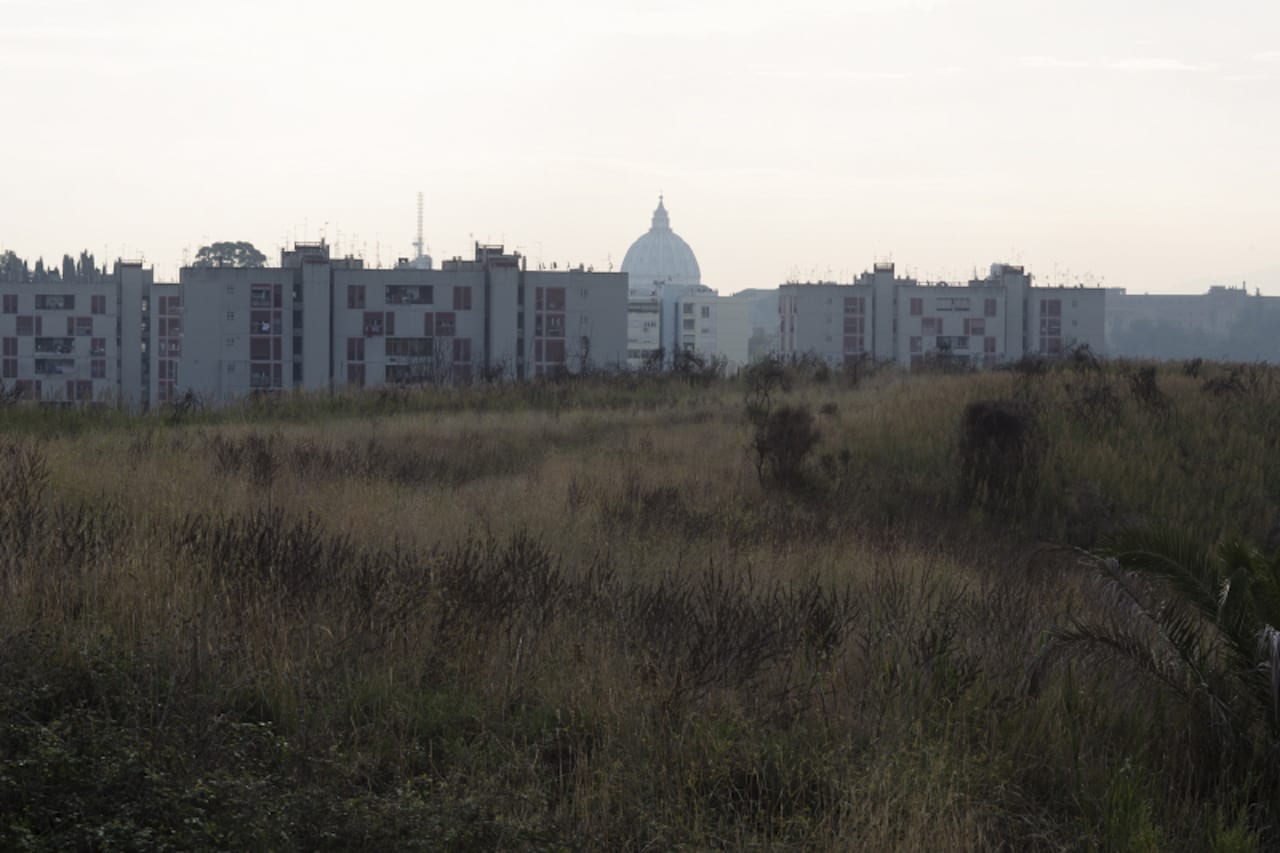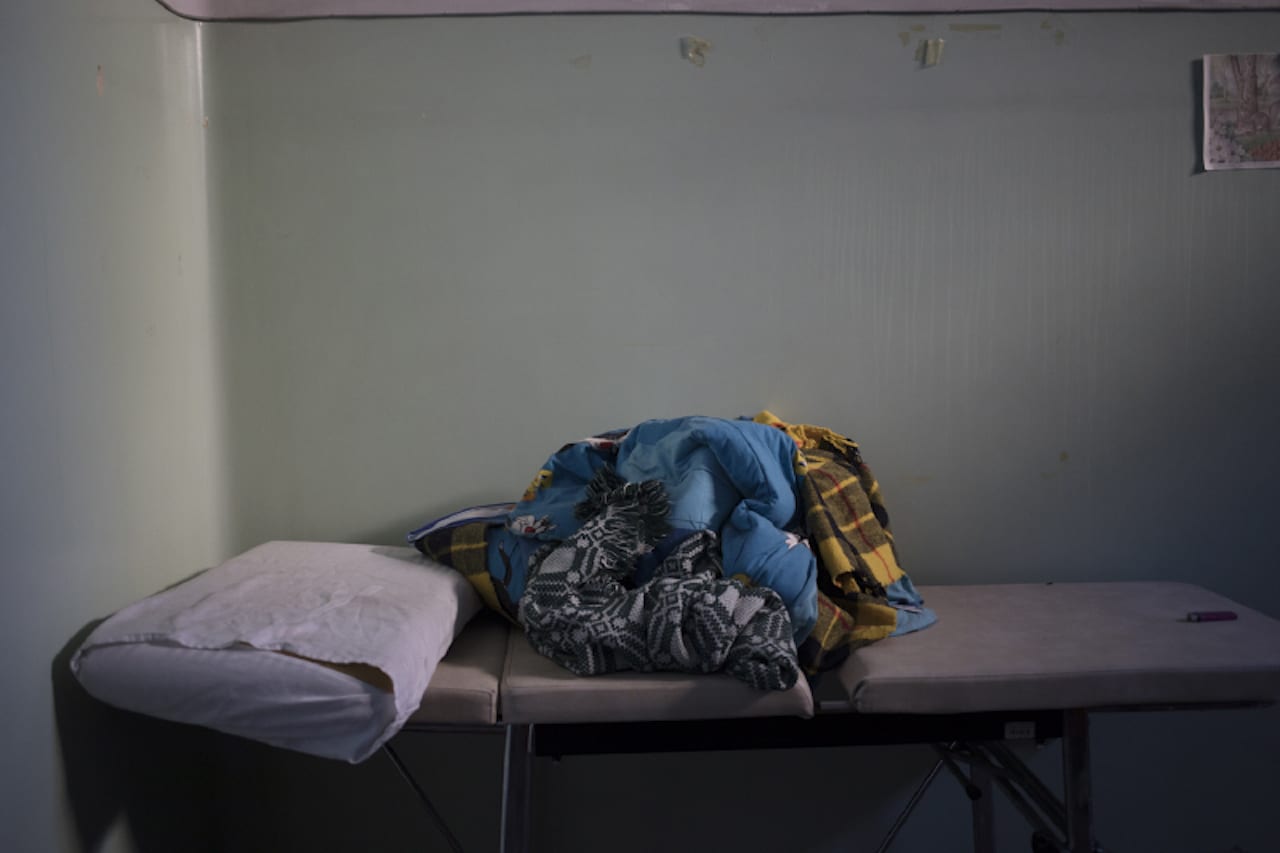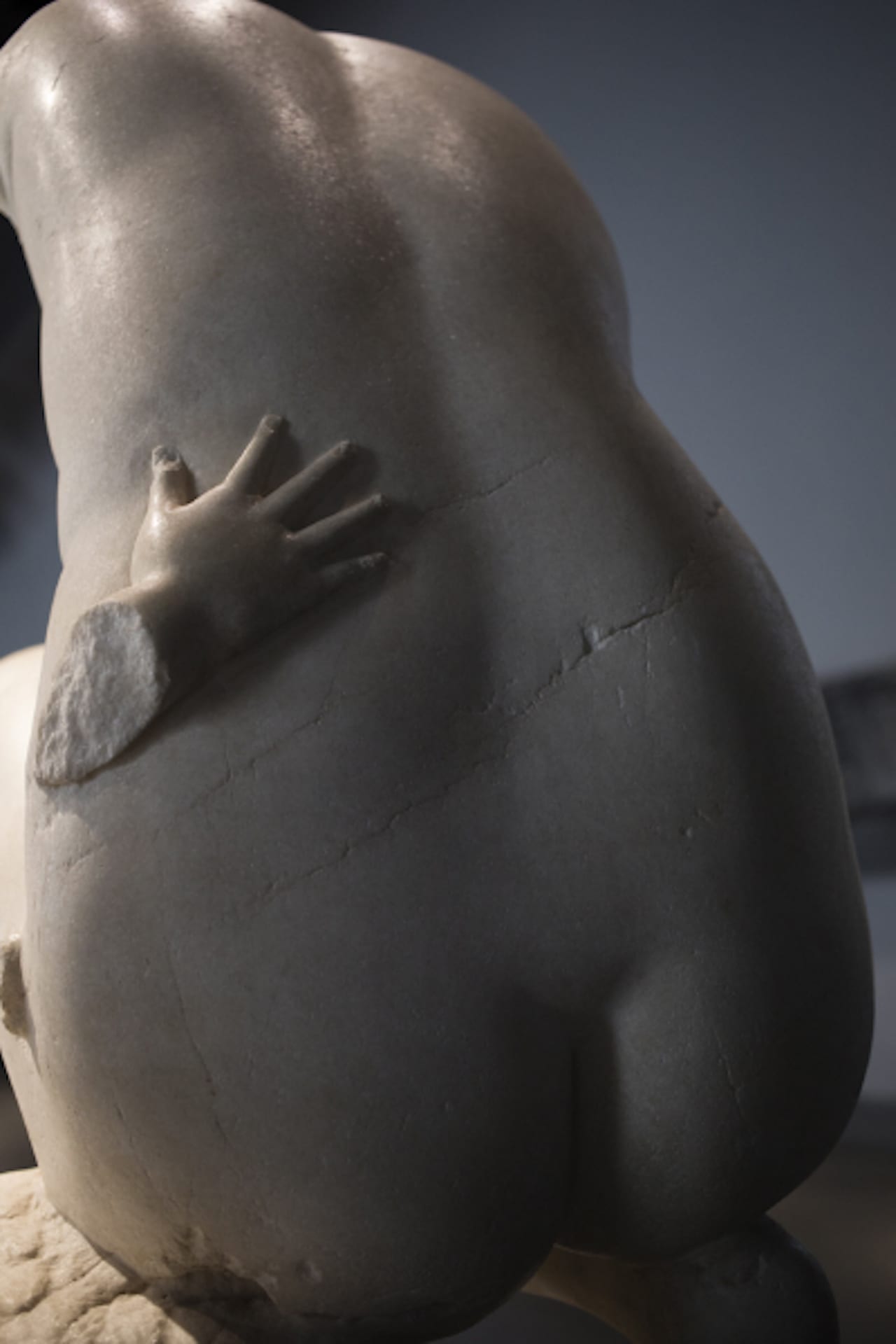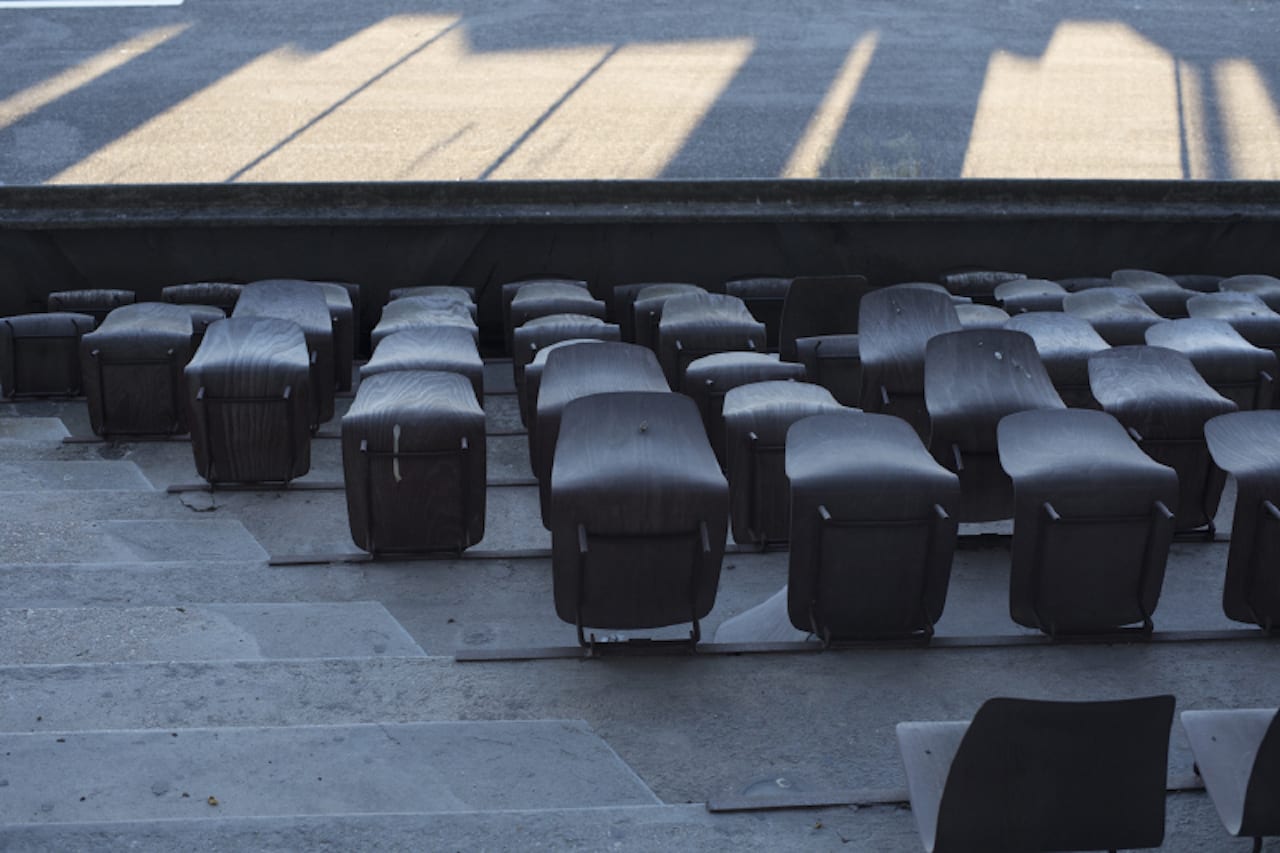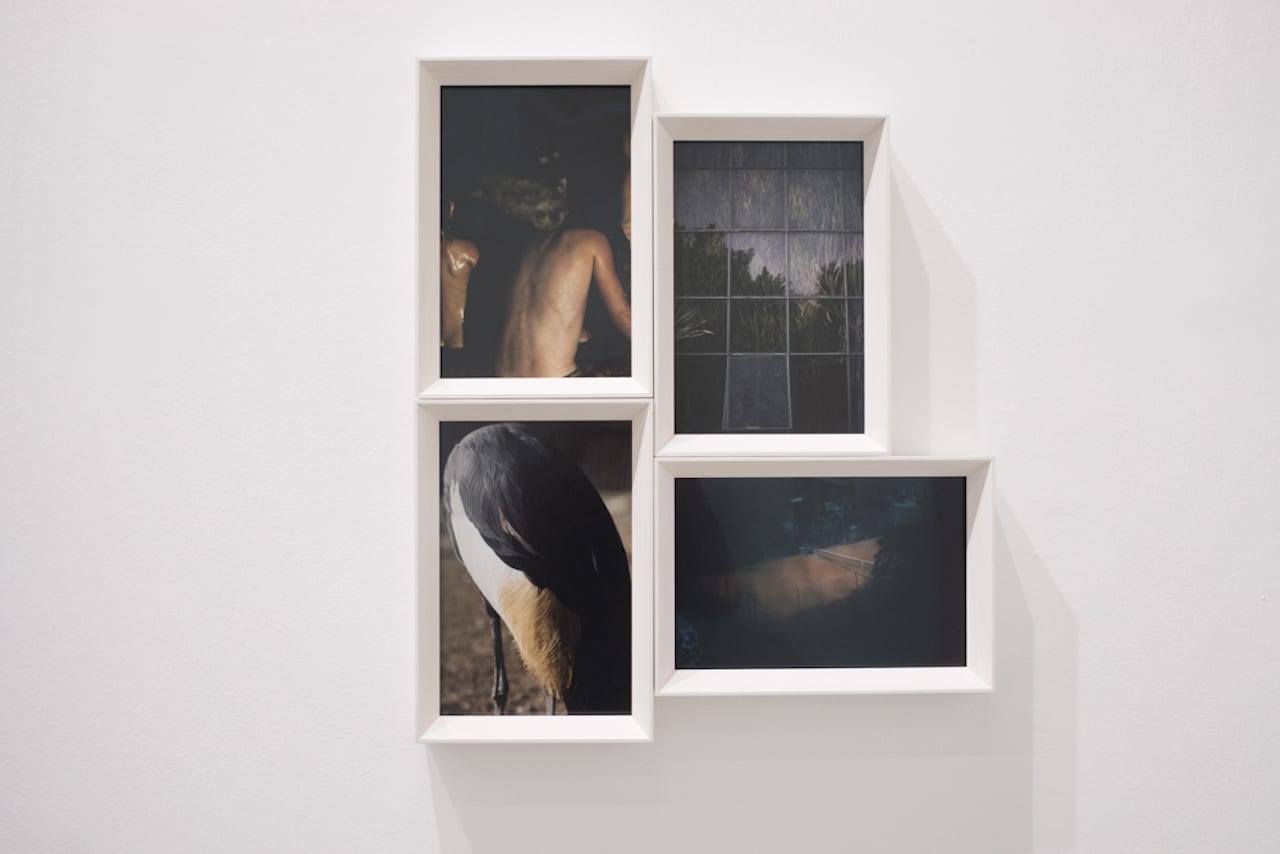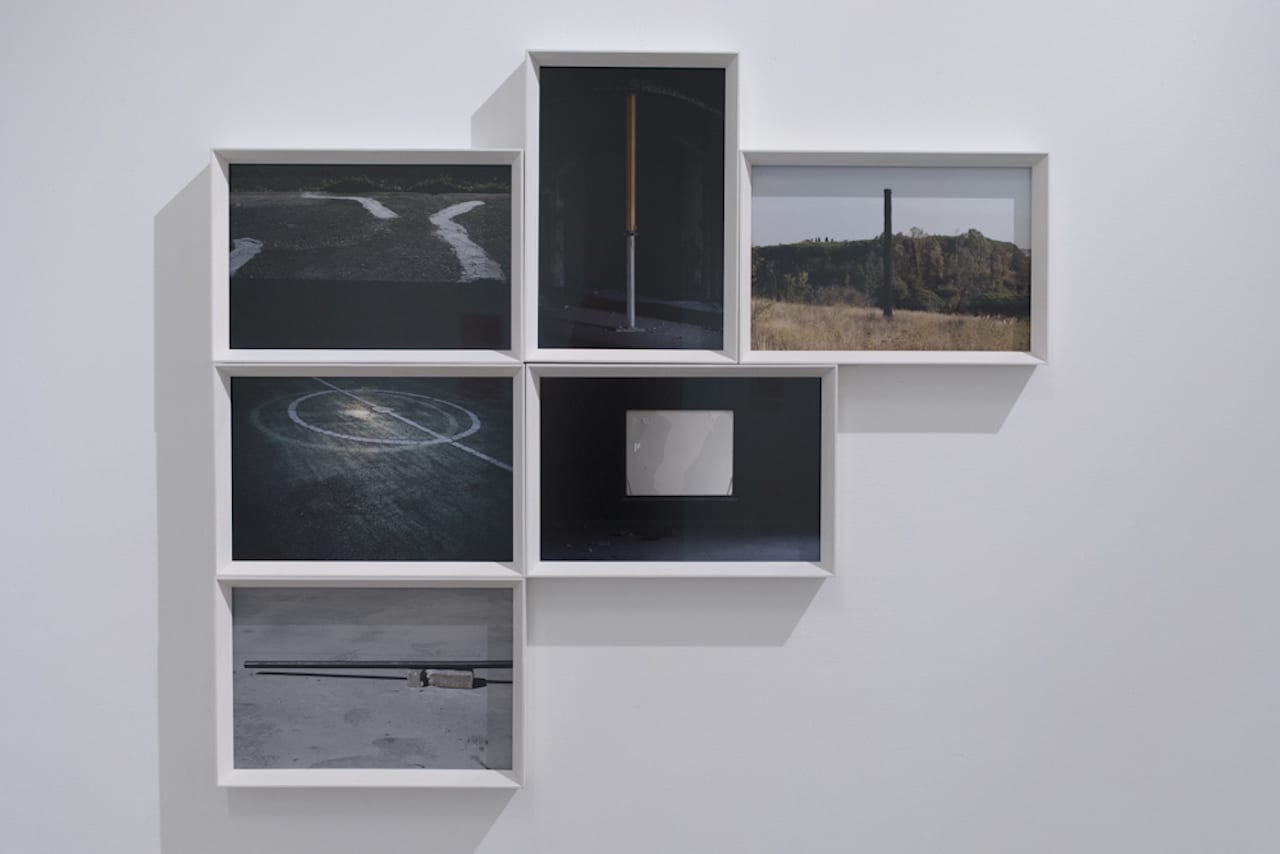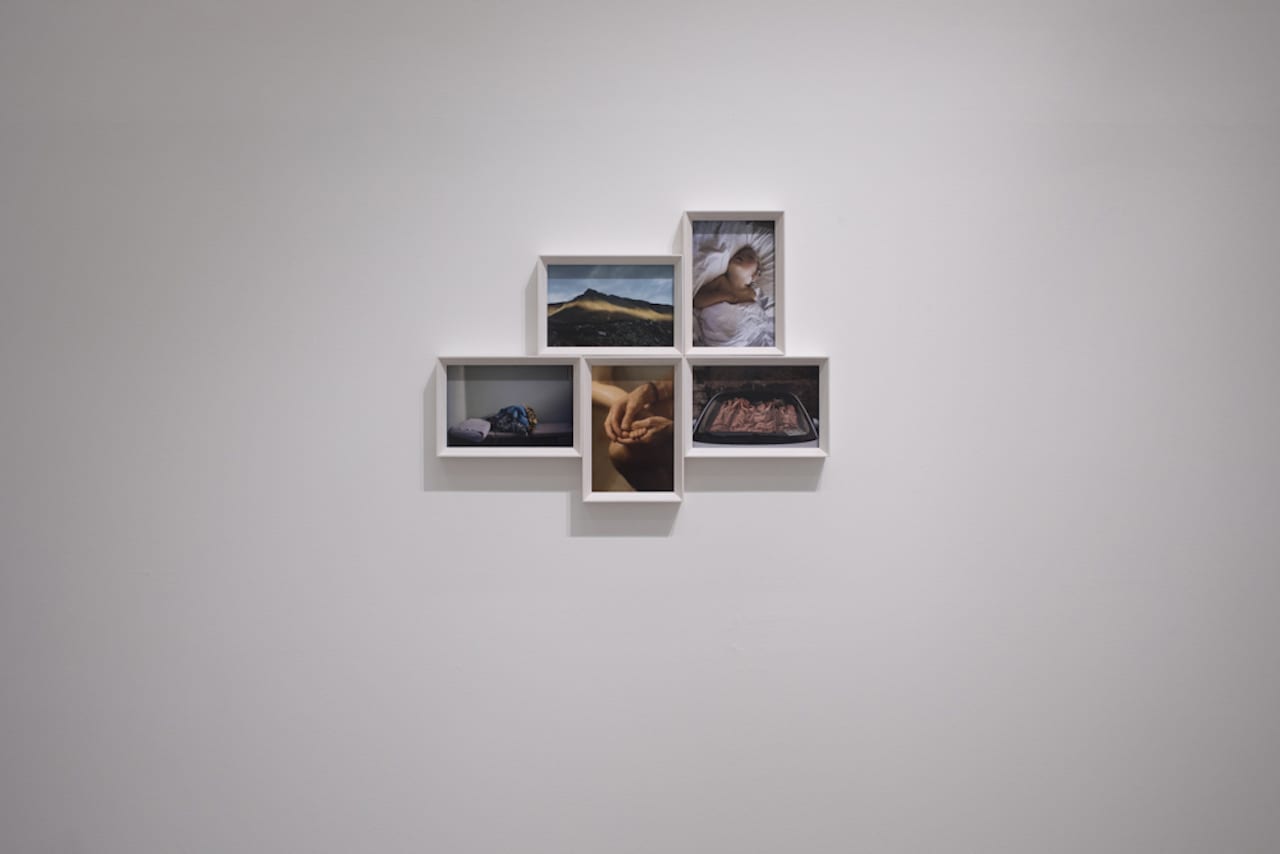For Léonie Hampton, photography is a tool to connect with the present moment. “I use it to explore the experience of being in a place, and being in that moment in time,” she says.
Most recently this approach inspired Mend, her project for the 2017 Rome Commission, commissioned by Marco Delogu, which will be on show at the Italian Cultural Institute as part of Photo London this week. “Rome is a great place to explore the idea of being in the present,” says Hampton, “because everywhere you go there are layers of time, visually and architecturally”.
In a time of environmental and political uncertainties, growing divisions of wealth, and, particularly in a Mediterranean country, the ongoing migration crisis, Hampton began to search the city for ways in which to interpret the contemporary world and her anxieties about it. Arriving in the city, Hampton had two ideas she wanted to explore photographically – her children, and the work of a local architectural collective, Stalker.
“Those two acorns were what started the journey I went on,” she says. “The future and my anxiety about it is something that has become more present since having children. I knew I wanted to engage with that idea, but I had no idea how”.
Stalker is a collective of architects, artists and academics who examine and walk through neglected parts of the city, aiming by doing so to reactivate them. With guidance from the group, Hampton walked the peripheries of Rome, discovering “great contemporary ruins” and areas that have been forgotten within the world-famous city.
“I was interested in the idea of moving and walking, particularly because I was in one place for so long photographing my mother and other families,” she says, “I craved movement after being static for so long.”
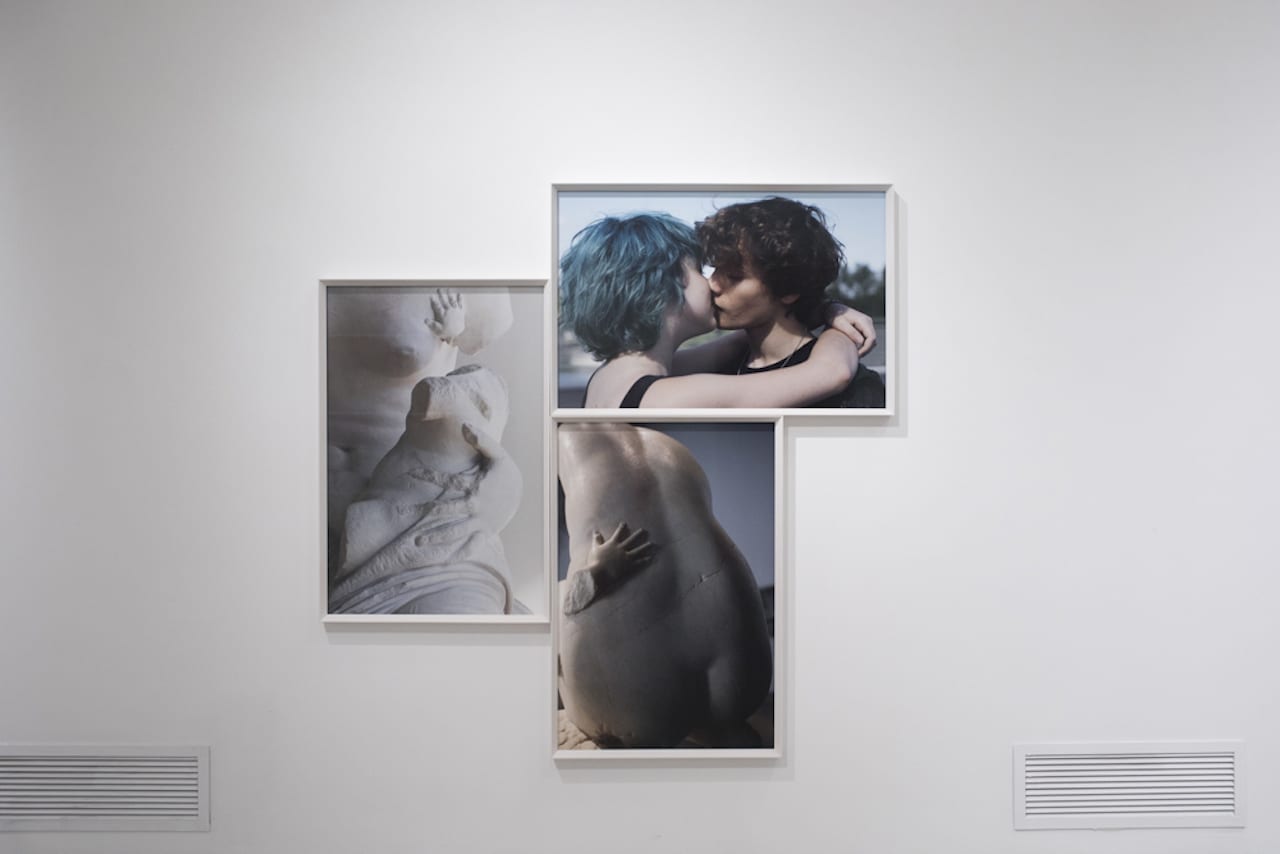
This approach also meant that she was able to take her husband and two young children along to Rome, merging her ideas of experiencing the present with her role as a mother. After long, hot days of photographing the city, Hampton would return to an intimate family environment. “I found the polarity of that interesting,” she says.
Family is a thread which runs through Hampton’s work. She’s photographed the Cariou family, striving to live autonomously in Provence, France; she’s also documented Alex, an 84-year-old second hand car dealer in Holloway, London, and the young men who gravitated towards him, creating a series called Labours of Hercules, which won her the prestigious Ian Parry Scholarship in 2003.
More recently In the Shadow of Things examined Hampton’s own family, and her mother’s struggle with OCD. The project documented the family’s attempt to clear her mother’s house, which had become overwhelmed with objects from the past. “The chaos of family life appeals to me,” she says, “because I came from a chaotic situation myself”.
For Hampton, documenting her mother’s situation was “a turning to yesterday”; by contrast, the Rome commission gave her an opportunity to focus on the present. The finished series shows derelict landscapes, incomplete structures, and intimate portraits, shown both in groups and as stand-alone images. Much like a photobook, Hampton found that creating spaces between certain photographs opened up a new connection and way of experiencing them.
“The ones that went together made sense together, it was an instinctive process of playing,” she says.
One group includes photographs of a dirty mattress, a makeshift cardboard house, and her child’s hand clutching his father’s neck – an apparently unlikely combination of shots. “It brings in the potential of an intimate way of seeing that mattress or the cardboard,” Hampton explains. “I can only do that by putting them right next to each other”.
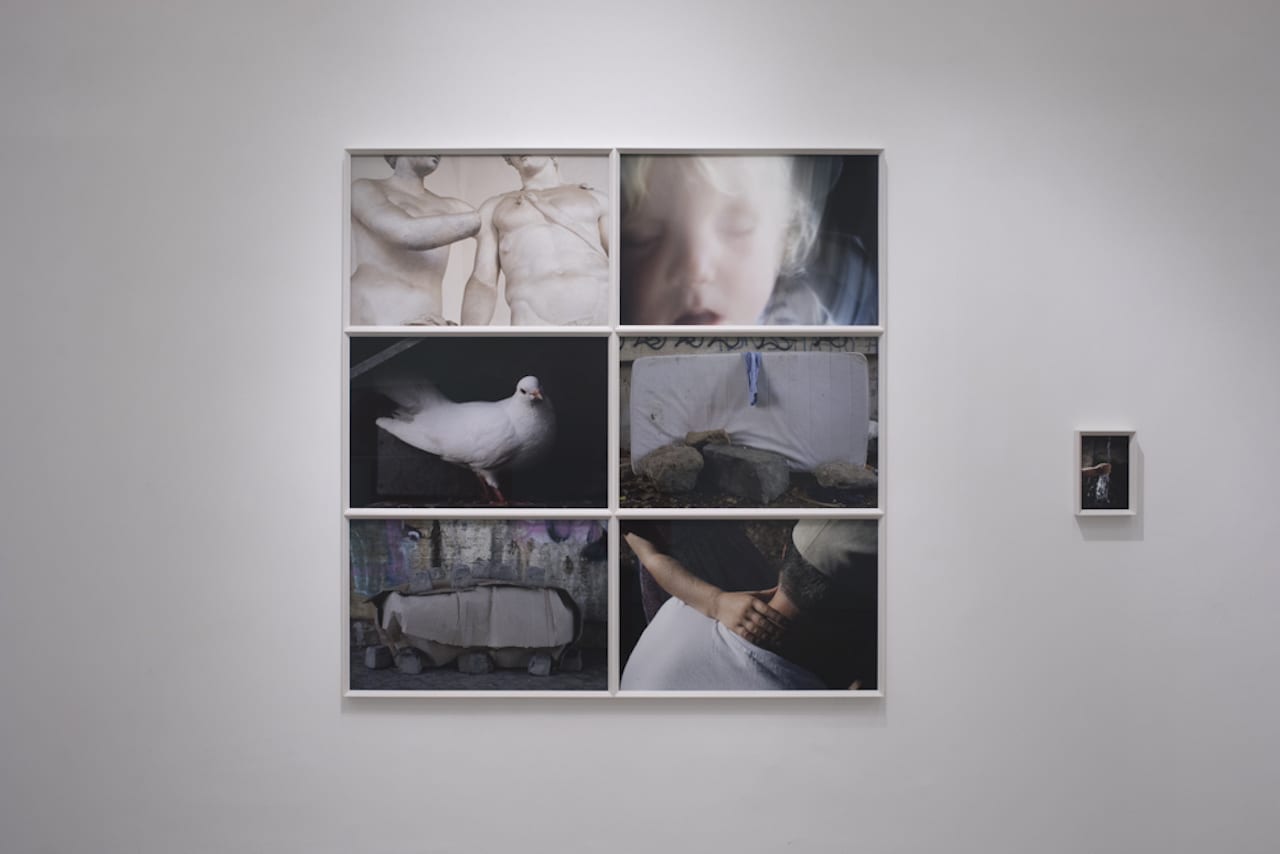
As such, the presence of the children and animals becomes a contrast with the incomplete structures and decaying places. “The children and animals are full of life,” explains Hampton, “while the pictures of the buildings are devoid of it”.
Hampton’s own experiences influenced Mend in other ways too – walking around parks, for example, she found herself instinctively drawn to embracing couples. “I’ve been with my husband since I was 16, so it very much resonated with that experience of young love,” she says. After photographing six or seven couples, only one made it into the final edit. “The kiss had a purity to it, it gave such hope,” she says.
And, she adds, these flickers of life are important for her. “Their presence serves to bring hope to some of the dystopic and anxious feelings,” she says. “Children are deeply personal and deeply full of hope, there is an unmitigated joy about them.
“I don’t want it to be apocalyptic,” she continues. “I want us to find the route to mending the future. That’s a human concern.”
www.leoniehampton.com/mend-1/ Mend by Léonie Hampton opens at 7pm on 16 May at the Italian Cultural Institute 39 Belgrave square, London, SW1X 8NX, and is on show until 09 June https://iiclondra.esteri.it/iic_londra/it The exhibition is a Photo London satellite event https://photolondon.org/public-programme/satellite-events/
Mend was first shown at MACRO, Museum of Contemporary Art in Rome in 2017 https://www.inexhibit.com/
